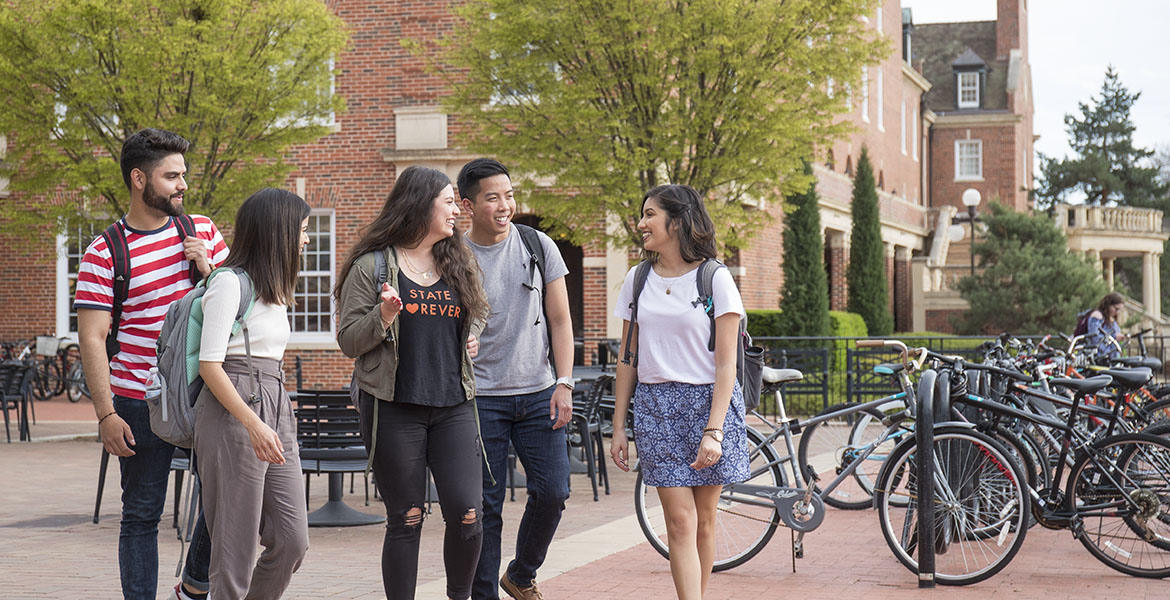
Jealousy: Keeping Your Friends Closer
Friday, December 18, 2020
Jealousy isn’t usually seen as a positive emotion, but one researcher at Oklahoma State University is studying how jealousy among friends can be beneficial.
Dr. Jaimie Krems, an assistant professor in psychology, is focusing her research on how jealousy may help us keep friends.
“Friends are important sources of emotional support, as well as materials support, like help when we’re in need, and social support, such as having our backs in inevitable conflicts with other people,” Krems said. “In fact, friendships are so beneficial to us that some suggest sustaining them is the next best thing we can do for our health behind quitting smoking.”
Friendships don’t always last, though, she said. In particular, friendships can be threatened by other people.
She called emotional responses to this threat “friendship jealousy.”
“We explored what evokes this emotion, and whether this emotion has features that would make it well-suited to meet the recurrent challenge of hanging onto our friends when our friends inevitably meet and befriend new people,” Krems said.
Across 11 studies, Krems and her team found that people feel greater jealousy when closer friendships are threatened, and that friendship jealousy is attuned more to some threats (someone replacing you in your best friend’s affection) than intuitive ones (your best friend spending more time with someone else).
“For example, people feel more friendship jealousy when our friends make new friends than new romantic partners,” Krems said. “This is because we do different things for our best friends than their romantic partners do, and so best friends’ romantic partners are less likely to replace us.”
Like all emotions, jealousy is an adaptive emotion. This means that the emotion arose over evolutionary time to help solve a recurrent problem faced by our ancestors, Krems said.
“Adapted, or functional, emotions help us solve problems linked to fitness, the coin of the realm in evolution,” Krems said. “That is, these emotions likely help us survive and thrive.” A good example of an adaptive emotion is the fear of the roar of a lion that prompts us to flee and live another day, Krems added.
“Friendship jealousy prompts us to engage in ‘friend guarding,’ a suite of behavior that helps us prevent the loss or defection of our friends to other people,” she said.
The team induced people to feel emotion in real time, gleaned responses to hypothetical scenarios, employed behavioral choice paradigms such as asking people where they would seat their friends and interlopers at a dinner party and engaged participants in recall of real-world events.
“The benefits of sustaining friendships are non-negligible,” Krems said. “Social ties can be powerful tools for achieving leadership positions and exercising social power.”
This emotion prompts us to keep our friends separate from those other people that might take our friends, even placing them farther away from best friends when we make a seating arrangement, the research found. Krems partnered with Hamilton College in New York and Arizona State University, making their team interdisciplinary, a benefit to the research, which was published in the Journal of Personality and Social Psychology.
“Social psychology is a team sport; this particular work leverages interdisciplinary evidence — from social, developmental, cognitive psychology, evolutionary social science, ethnography, animal behavior and social network analysis,” Krems said.
“Previous work in developmental psychology suggested that these feelings were solely negative, and perhaps we should feel shame for experiencing such jealousy,” Krems said. “The perspective we take asks instead why such a negative emotion would persist if it didn’t give rise to some benefits.”
